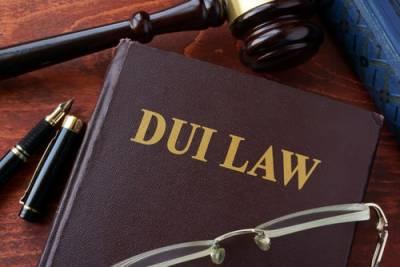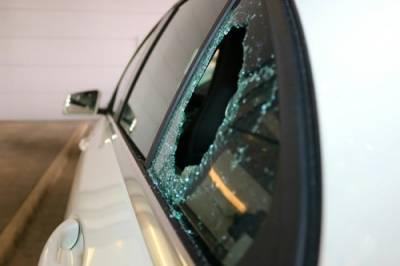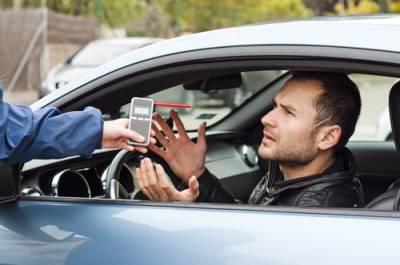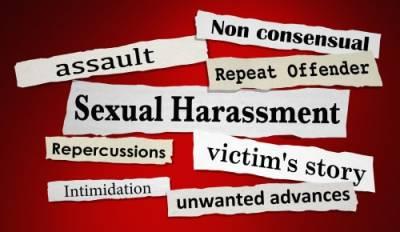Recent Blog Posts
Criminal Mischief Charges in Connecticut
 In many communities, vandalism and minor property crimes, referred to as criminal mischief in Connecticut, are essentially considered a rite of passage for young men and women. However, law enforcement can and does take these offenses very seriously, especially if the amount of property damage is significant. If your child has been arrested for criminal mischief, you need to engage an attorney who understands the nature of both Connecticut’s juvenile and adult criminal justice systems.
In many communities, vandalism and minor property crimes, referred to as criminal mischief in Connecticut, are essentially considered a rite of passage for young men and women. However, law enforcement can and does take these offenses very seriously, especially if the amount of property damage is significant. If your child has been arrested for criminal mischief, you need to engage an attorney who understands the nature of both Connecticut’s juvenile and adult criminal justice systems.
Different Levels of Severity
Connecticut criminal mischief laws are designed to encompass a variety of crimes designed to damage property. The state statute covers not only classic property damage and vandalism, but also intentionally causing an interruption of services such as electricity and otherwise interfering with equipment or property belonging to a utility. Like with many different crimes in Connecticut, there are different degrees of criminal mischief, and the charge will depend on the level of damage caused by your child.
First Time DUI Offenders in Fairfield County
 When someone drives under the influence, they endanger themselves and everyone around them. However, a first-time DUI offender, while still behaving recklessly, is more likely to have simply made a mistake than to have engaged in any pattern of consciously reckless behavior, and may have no idea how to negotiate the legal process after being charged with a DUI. If you are in this situation, an experienced attorney can be of help in guiding you through.
When someone drives under the influence, they endanger themselves and everyone around them. However, a first-time DUI offender, while still behaving recklessly, is more likely to have simply made a mistake than to have engaged in any pattern of consciously reckless behavior, and may have no idea how to negotiate the legal process after being charged with a DUI. If you are in this situation, an experienced attorney can be of help in guiding you through.
Criminal and Administrative Consequences
Connecticut’s DUI law states that it is illegal to operate a vehicle with a blood alcohol content over 0.08 (for most drivers; for juveniles, the limit is lower). Criminal charges and administrative processes both start at the time a person is charged with driving under the influence. In addition to whatever criminal charges the state decides to bring against a driver, the Connecticut Department of Motor Vehicles also automatically starts proceedings that may wind up with your license suspended, or with an ignition interlock placed on your vehicle.
Are You Facing Assault Charges in Connecticut?
 At common law, assault was the crime of threatening or menacing someone into believing they are about to be harmed. However, in Connecticut, the definition actually requires physical contact and can be tried as a misdemeanor or a felony. If you have been charged with assault, you need an experienced attorney on your side to help ensure that your rights are protected in court.
At common law, assault was the crime of threatening or menacing someone into believing they are about to be harmed. However, in Connecticut, the definition actually requires physical contact and can be tried as a misdemeanor or a felony. If you have been charged with assault, you need an experienced attorney on your side to help ensure that your rights are protected in court.
Several Degrees
Assault in Connecticut can be charged in three different degrees, as of current law, with the specific choice of charge being affected by the severity of the incident. For example, if you cause bodily harm to someone with the intent to hurt them (as opposed to having intent to kill), you would likely be charged with third-degree assault, a Class A misdemeanor. Comparatively, if you cause serious physical injury to someone with intent (or with extreme recklessness), you would most likely be charged with first-degree assault, which is a Class B felony.
Why Do I Need a Connecticut Criminal Defense Attorney?
 Very often, people who have been arrested and charged with minor crimes in Connecticut might try to navigate the criminal justice system without an attorney, even though they are entitled to one. It can be easy to tell yourself that the charges are minor, that you will be able to manage without paying an attorney - but the odds are overwhelmingly against you managing to talk yourself out of fines and jail time. Enlisting a Connecticut criminal defense attorney is always a better idea.
Very often, people who have been arrested and charged with minor crimes in Connecticut might try to navigate the criminal justice system without an attorney, even though they are entitled to one. It can be easy to tell yourself that the charges are minor, that you will be able to manage without paying an attorney - but the odds are overwhelmingly against you managing to talk yourself out of fines and jail time. Enlisting a Connecticut criminal defense attorney is always a better idea.
Trust in Knowledge
While it is possible to represent yourself in a criminal matter, it is emphatically not recommended. You are required to know all the ins and outs of the law, just like any lawyer would, and failure to abide by both law and etiquette can torpedo your case before you even get started. If, for example, you represent yourself and take a plea-bargain, you may find out later on in life that you could have gotten a better deal. It is simply not worth the risk to try and handle a criminal matter on your own.
Connecticut Parental Liability for Actions of Minor Children
 Many parents are not aware that until their children become adults, they remain responsible for their children’s actions. This can often come as an unwelcome surprise to parents who are surprised out of the blue by police at their door or by bills they did not expect. If you have been advised you may be liable due to your children’s actions, you need to consult an attorney who understands these cases so you can ensure both you and your child’s rights are protected.
Many parents are not aware that until their children become adults, they remain responsible for their children’s actions. This can often come as an unwelcome surprise to parents who are surprised out of the blue by police at their door or by bills they did not expect. If you have been advised you may be liable due to your children’s actions, you need to consult an attorney who understands these cases so you can ensure both you and your child’s rights are protected.
Property Damage and Injury
The relevant Connecticut statute is fairly straightforward about the types of offenses for which a parent can incur liability. The key phrase is that a parent is liable when their child “willfully or maliciously” causes damage to any property or injury to any person. It is important to keep in mind that ‘intentional’ has to mean ‘without just cause,’ rather than simply someone choosing to voluntarily act. For example, if a child chooses to act in a way that is almost guaranteed to injure someone, it does not necessarily matter if they had no intention to injure anyone - they still acted in that way.
Caught Shoplifting in Fairfield County?
 Shoplifting is an all too common crime, but just because it occurs regularly does not mean that law enforcement does not take it seriously. If you have been arrested and charged with shoplifting, you need an experienced attorney on your side to make sure that your rights are protected. Having any kind of charge on your record can cause problems for you later on down the road.
Shoplifting is an all too common crime, but just because it occurs regularly does not mean that law enforcement does not take it seriously. If you have been arrested and charged with shoplifting, you need an experienced attorney on your side to make sure that your rights are protected. Having any kind of charge on your record can cause problems for you later on down the road.
Dollar Amount Matters
Shoplifting falls under Connecticut’s larceny law, in which ‘larceny’ is used as an umbrella term to cover many different theft crimes. Its rough definition is when someone intentionally takes items from a store or other ‘mercantile establishment’ without intending on paying the advertised price for the goods. It can be confusing to some, but if you have been charged with a theft crime, the charge will likely be larceny, even though it is technically a more specific offense.
What Happens When You Refuse a Breathalyzer Test?
 Drinking and driving is never acceptable under any circumstances and justifiably carries serious consequences, even for first offenders. However, there are ways that a person can make things even worse for themselves when they get caught. Refusing a breathalyzer or other sobriety test is at the top of the list - but at the same time, refusing a breathalyzer is not a crime in Connecticut. Either way, enlisting a Stamford DUI attorney will help you ensure your rights are protected.
Drinking and driving is never acceptable under any circumstances and justifiably carries serious consequences, even for first offenders. However, there are ways that a person can make things even worse for themselves when they get caught. Refusing a breathalyzer or other sobriety test is at the top of the list - but at the same time, refusing a breathalyzer is not a crime in Connecticut. Either way, enlisting a Stamford DUI attorney will help you ensure your rights are protected.
A Danger to Others
If you are pulled over on suspicion of drinking and driving, you will be asked to take at least one sobriety test, with a breathalyzer being one that is commonly used in the field. It is not against the law to refuse a breath test in Connecticut (though it is in many other states), If you refuse, state law allows for your drivers’ license to be immediately suspended, generally for up to six months’ time for a first offense, with the length of time rising with each offense and refusal. If you are under the age of 18 and refuse a breathalyzer, the license suspension will be 18 months for a first offense.
Connecticut Sex Crimes
 Being the victim of a sex crime is one of the most devastating events that can happen to a person. However, being accused of a sex crime that you did not commit can be a terrifying process that can essentially ruin lives. If you are in that position, it is absolutely critical to engage an experienced Stamford sex crimes defense attorney who understands the stakes of your situation.
Being the victim of a sex crime is one of the most devastating events that can happen to a person. However, being accused of a sex crime that you did not commit can be a terrifying process that can essentially ruin lives. If you are in that position, it is absolutely critical to engage an experienced Stamford sex crimes defense attorney who understands the stakes of your situation.
Different Degrees
Sex crimes in Connecticut run the gamut from Class B misdemeanors to Class A felonies, and they can require varying degrees of intent. Generally, the degree charged will be higher the more evidence of force is present. For example, if someone engages in a sexual act with someone who is legally ineligible to consent, but without force, they will likely be charged with sexual assault in the fourth degree, but if they engage in sex while using force, they will be charged with third-degree assault, or possibly rape, which is sexual assault in the first degree.
Caught with Hard Drugs in Connecticut?
<p While Connecticut is known for having decriminalized possession of small amounts of marijuana at a relatively early point in time, many tend to forget that the state’s law on possession of harder drugs is just as severe as that of any other. Drugs like cocaine and heroin are in a different medical classification group than marijuana, and the effect of possession and use on the public good is far worse. If you have been caught with harder drugs than marijuana, you definitely need to contact an experienced attorney to help you.
While Connecticut is known for having decriminalized possession of small amounts of marijuana at a relatively early point in time, many tend to forget that the state’s law on possession of harder drugs is just as severe as that of any other. Drugs like cocaine and heroin are in a different medical classification group than marijuana, and the effect of possession and use on the public good is far worse. If you have been caught with harder drugs than marijuana, you definitely need to contact an experienced attorney to help you.
Possession and Intent to Distribute
Connecticut law recognizes two types of drug possession crimes - simple possession, and possession with intent to distribute. While intent to distribute is a crime carrying a long jail term, simple possession of hard drugs is still seen as a serious offense even if there is no intent to sell visible. This is because hard drugs have been documented to cause not acute harm not only to users, but to those around them as well. This idea of wanting to protect society, in general, is referred to as public policy, and drug offenses are often referred to as public policy crimes.
Have You Been Charged with a Connecticut Misdemeanor?
 It is very common for someone who has been charged with a misdemeanor to treat the whole episode as somehow not particularly serious or important, especially if they have never had any run-in with the law before. However, it is never a good idea to see criminal charges as inconsequential. If you have been charged with a misdemeanor, contacting a criminal defense lawyer is the first step you should take.
It is very common for someone who has been charged with a misdemeanor to treat the whole episode as somehow not particularly serious or important, especially if they have never had any run-in with the law before. However, it is never a good idea to see criminal charges as inconsequential. If you have been charged with a misdemeanor, contacting a criminal defense lawyer is the first step you should take.
Misdemeanors May Not Stay Misdemeanors
Connecticut criminal law has a wide range of misdemeanors, from disorderly conduct to prostitution. Class D misdemeanors are the least serious, usually carrying no more than 30 days in jail and a fine of a few hundred dollars. As the class goes up, so do the fines and the jail terms. Class A misdemeanors like prostitution can carry up to one year in jail, and fines of up to $2,000. No misdemeanor sentence will last more than one year, as Connecticut law immediately classifies all crimes with longer sentences as felonies.







